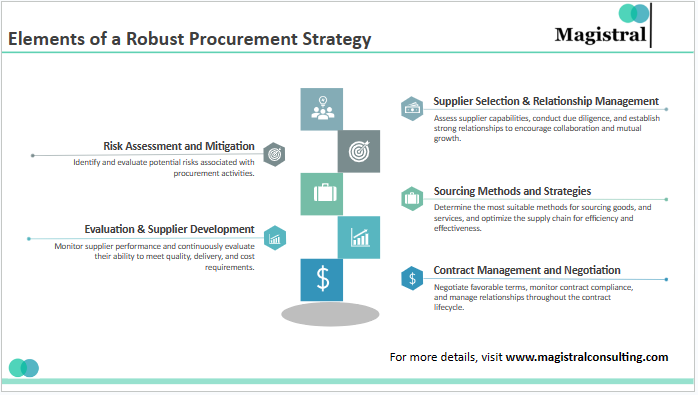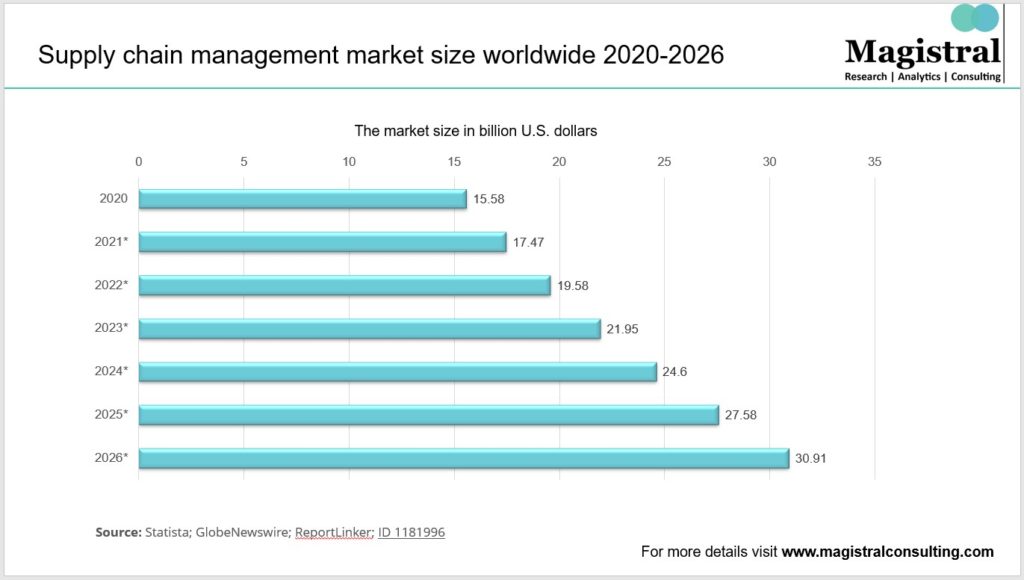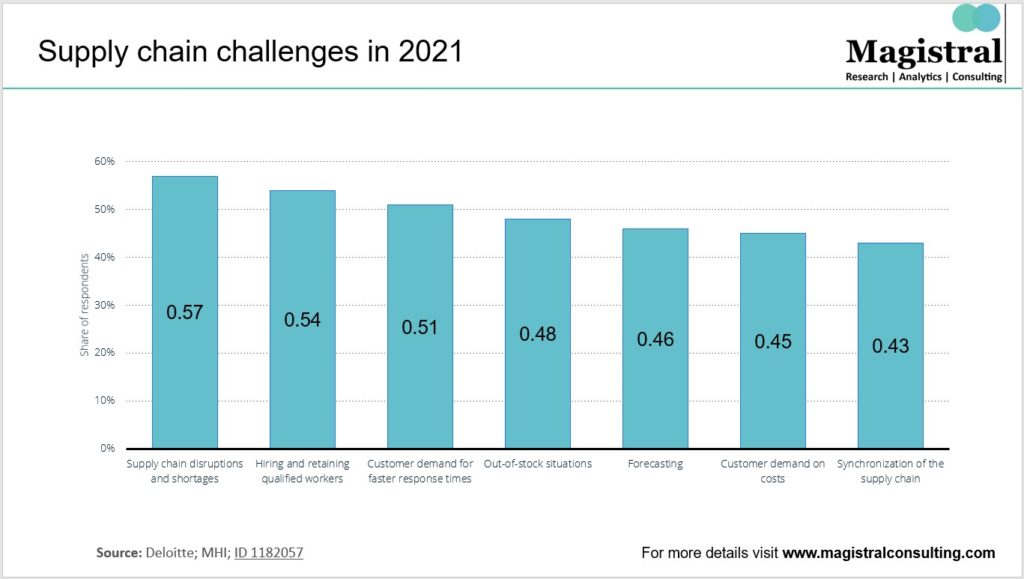Organizations are releasing more and more the strategic importance of procurement in promoting overall success, cost-effectiveness, and operational efficiency in today’s dynamic business environment. Purchasing products, services, and resources is known as procurement. Its historic use as a means of making basic purchases has given way to the recognition of procurement as a critical function that helps firms achieve their goals and obtain a competitive advantage. Organizations that want to maximize their supply chains, cultivate enduring relationships with suppliers, reduce risks, and provide value to their clients must have a clearly defined procurement strategy.
In this article, we explore the fundamental components of a robust procurement strategy and offer invaluable insights for organizations seeking to enhance their procurement practices and achieve success in today’s demanding marketplace.
Introduction to Procurement Strategy
Procurement strategy encompasses the comprehensive plan and approach that organizations develop to guide their procurement activities. It involves the strategic and systematic management of the entire procurement process, spanning from identifying needs and sourcing suppliers to negotiating contracts and managing relationships.
The primary objective of a procurement strategy is to ensure the organization’s acquisition of goods, services, and resources in a manner that is timely, cost-effective, and efficient while meeting quality standards and minimizing risks. It entails considering various factors, such as supplier selection, sourcing methods, contract management, risk assessment and mitigation, and performance evaluation.
Elements of a Robust Procurement Strategy
The composition of a robust procurement strategy may vary depending on the unique requirements and objectives of each organization. However, there are several common elements that are frequently included in a procurement strategy:

Elements of a Robust Procurement Strategy
Supplier Selection and Relationship Management
This element focuses on identifying and choosing dependable suppliers who can fulfill the organization’s needs. It involves assessing supplier capabilities, conducting due diligence, and establishing strong relationships to encourage collaboration and mutual growth.
Sourcing Methods and Strategies
This element entails determining the most suitable methods for sourcing goods, services, and resources. It encompasses factors such as make-or-buy decisions, evaluating different sourcing options (e.g., single sourcing, multiple sourcing, global sourcing), and optimizing the supply chain for efficiency and effectiveness.
Contract Management and Negotiation
Effective contract management is vital for ensuring that supplier agreements are clear, enforceable, and aligned with the organization’s interests. This element encompasses negotiating favorable terms, monitoring contract compliance, and managing relationships throughout the contract lifecycle.
Risk Assessment and Mitigation
Risk assessment involves identifying and evaluating potential risks associated with procurement activities. This includes assessing risks related to supplier performance, supply chain disruptions, price volatility, regulatory compliance, and geopolitical factors. The procurement strategy should outline measures to mitigate and manage these risks effectively.
Performance Evaluation and Supplier Development
This element focuses on monitoring supplier performance and continuously evaluating their ability to meet quality, delivery, and cost requirements. It involves establishing key performance indicators (KPIs), conducting performance reviews, and implementing supplier development programs to drive continuous improvement.
These elements should be customized to align with the organization’s specific requirements, industry, and objectives. A well-rounded procurement strategy integrates these elements into a cohesive framework, enabling the organization to maximize value, minimize risks, and achieve sustainable success.
Importance of Procurement Strategy in Today’s Business Landscape
Procurement strategy plays a pivotal role in today’s business landscape, and its importance cannot be overstated. Here are several key reasons why procurement strategy is crucial for organizations:

Importance of Procurement Strategy
Cost Optimization
Procurement strategy helps organizations optimize costs by efficiently acquiring goods, services, and resources. It involves strategic sourcing, supplier negotiations, and effective contract management to secure competitive prices and favorable terms. By minimizing procurement expenses, organizations can improve financial performance and profitability.
Operational Efficiency
A well-defined procurement strategy enhances operational efficiency by streamlining procurement processes, reducing cycle times, and eliminating inefficiencies. It establishes standardized procedures, automates manual tasks, and leverages technology for improved productivity and resource utilization.
Supply Chain Resilience
Procurement strategy plays a vital role in building resilient supply chains. It involves diversifying suppliers, assessing and managing risks, and implementing contingency plans. By doing so, organizations can mitigate disruptions caused by factors like natural disasters, geopolitical events, or supplier issues, ensuring continuity of operations.
Quality Assurance
The procurement strategy emphasizes robust supplier selection and performance management. By sourcing goods and services from reliable and high-quality suppliers, organizations maintain product and service standards, enhance customer satisfaction, and protect their reputation.
Innovation and Market Advantage
A well-crafted procurement strategy fosters innovation through collaboration with suppliers and the exploration of new technologies, materials, and ideas. Engaging suppliers as strategic partners allow organizations to tap into their expertise, drive innovation, and gain a competitive edge in the market.
A procurement strategy is essential for organizations to optimize costs, drive operational efficiency, manage risks, foster innovation, and maintain a competitive advantage. By aligning procurement activities with organizational goals, businesses can achieve success in today’s dynamic and competitive business landscape.
Challenges in Procurement Strategy Implementation
Implementing a procurement strategy can be a complex endeavor, as organizations often face a range of challenges and obstacles. Overcoming these challenges is essential to ensure the successful execution of the procurement strategy. Some common obstacles and pitfalls encountered during procurement strategy implementation include:
Resistance to Change
Introducing new procurement strategies may be met with resistance from employees and stakeholders who are accustomed to established practices. Overcoming resistance and fostering a culture of acceptance and collaboration is crucial for smooth implementation.
Inadequate Stakeholder Engagement
Failure to engage and involve key stakeholders, such as end-users, finance teams, and suppliers, can hinder the implementation process. Engaging stakeholders early on, seeking their input, and addressing their concerns can increase acceptance and cooperation.
Poor Data Quality and Systems
Inaccurate or insufficient data and inadequate procurement systems can hinder implementation efforts. Investing in robust data management systems, accurate analytics, and reporting capabilities is essential for informed decision-making and monitoring progress.
Ineffective Supplier Management
Successful procurement strategy implementation relies on strong supplier relationships. Inadequate supplier management practices, such as poor communication, insufficient performance monitoring, or delayed payments, can disrupt supply chains and impact strategy outcomes.
Lack of Performance Monitoring and Evaluation
Without effective monitoring and evaluation mechanisms, it becomes challenging to assess progress, identify gaps, and make necessary adjustments. Regular performance monitoring, key performance indicators (KPIs), and performance evaluation frameworks are essential for tracking success and driving continuous improvement.
Budget and Resource Constraints
Limited budgets and resource constraints can pose challenges in implementing desired procurement strategies. Proper resource allocation, budget planning, and prioritization of initiatives are necessary to overcome these constraints effectively.
By proactively addressing these challenges and pitfalls, organizations can increase the likelihood of successful procurement strategy implementation and achieve their desired outcomes.
Magistral’s Services on Procurement Strategy
As a well-known worldwide leader in procurement consultancy, Magistral consultancy focuses on helping businesses create and manage high-performing procurement departments. Our goal is to provide organizations with the tools they need to quickly increase their efficacy and efficiency, broadening their strategic horizons and producing greater commercial impact.
Our extensive set of procurement consulting capabilities includes:
Procurement Transformation
Magistral Consulting takes a comprehensive approach to procurement transformation, aiming to establish a high-performance procurement organization within a condensed time frame.
Opportunity Assessment
Magistral Consulting performs a comprehensive evaluation of current sourcing processes, presenting a roadmap that highlights the transition from the current state to an ideal state.
Strategic cost management
Within a year, our strategic cost management programs can assist in identifying and eliminating as much as 35% of SG&A (Selling, General, and Administrative) costs, freeing up funds that can be used to invest in growth-oriented projects and raise shareholder returns.
Supplier Risk Management & Assessment
We assist clients in proactively identifying third-party risks and managing them more effectively by building thorough supply risk management plans to reduce exposure and guarantee company continuity.
About Magistral Consulting
Magistral Consulting has helped multiple companies to reduce operations costs through its offerings in Procurement and Supply Chain.
For setting up an appointment with a Magistral representative visit www.magistralconsulting.com/contact
About the Author
The article is authored by the Marketing Department of Magistral Consulting. For any business inquiries, you can reach out to prabhash.choudhary@magistralconsulting.com




